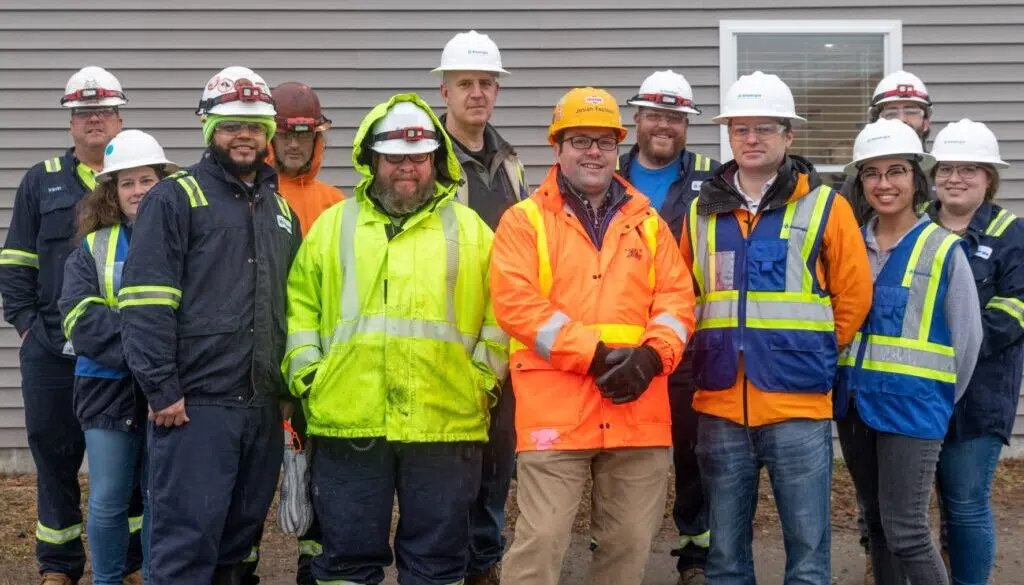As pressure to reduce greenhouse gas emissions intensifies in the face of climate change, some energy companies are turning to a unique alternative to traditional fossil fuels.
Companies like New Brunswick’s Irving Oil have started replacing some of their natural gas usage with RNG, a renewable natural gas made from organic matter.
Ontario’s Anaergia Inc. will soon supply 350 million cubic feet of RNG to Irving. The gas will be added directly to the regional natural gas pipeline.
The gas is created with organic food waste and other organic matter and produced at a bioenergy facility in Rhode Island. The facility is the largest anaerobic digester processing organic waste in New England, converting organic waste into fertilizer, recycled water, and RNG.
“It’s the same molecule, methane,” says Anergia COO Yaniv Scherson of RNG, comparing it with conventional natural gas. “Companies and utilities are realizing the beauty with RNG is that it’s the only fuel that has a negative carbon intensity. That means in producing the fuel, we’re eliminating more greenhouse gases than we are generating.”
How exactly does that work?
Methane from rotting organic waste, including food and sewage, is about 84 times worse than carbon dioxide over a 20-year horizon. Using it to produce RNG stops that waste from releasing the methane, a gas that is responsible for over 1/3 of global greenhouse gas warming.
“Now we’re capturing all that methane potential and putting that into the gas grid.”
Scherson says the ability to create an identical fuel, in a manner that takes even more greenhouse gases out of the atmosphere, and plug that into existing infrastructure, will help companies accomplish rapid decarbonization.
Irving’s Andy Carson agrees. He says Irving is using the gas to help meet its 2030 renewable energy obligations.
“We set up an ambitious goal to decarbonize our operations by 30 percent by 2030,” Carson, the director of energy transition at Irving Oil, says.
“One of the important opportunities that we identified … is the importance of renewable natural gas as another tool in the toolbox of driving emissions down and allowing us to incrementally, but importantly, ladder toward that 2030 goal.”
“The use of this renewable natural gas as part of our overall daily diet, or requirement for natural gas, will play an important role in driving down the emissions associated with our Saint John refinery operations…and produce an overall cleaner energy product for our customers at the end of the day,” Carson added.
Carson says that while Irving is sourcing from Anaergia’s American facility on this initial move, there’s room in the future to work with Canadian facilities producing similar products.
On the price side, Carson says there is a “premium” to use RNG as opposed to a traditional fossil fuel-based natural gas, but those additional costs will be offset.
“[RNG] doesn’t have the same emissions profile as conventional natural gas, so therefore, it doesn’t have the same impact in terms of carbon taxes and other regulatory fees that are that are paid on top of the use of conventional natural gas.”
Carson says the use of RNG will not require Irving to invest in new technologies or processes.
Alex Graham is a reporter with Huddle, an Acadia Broadcasting content partner.







